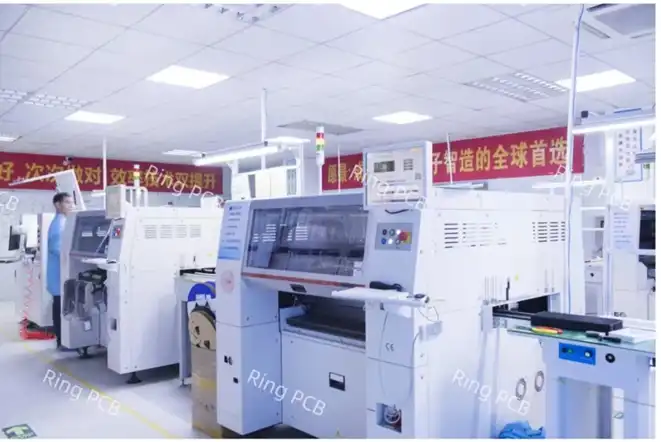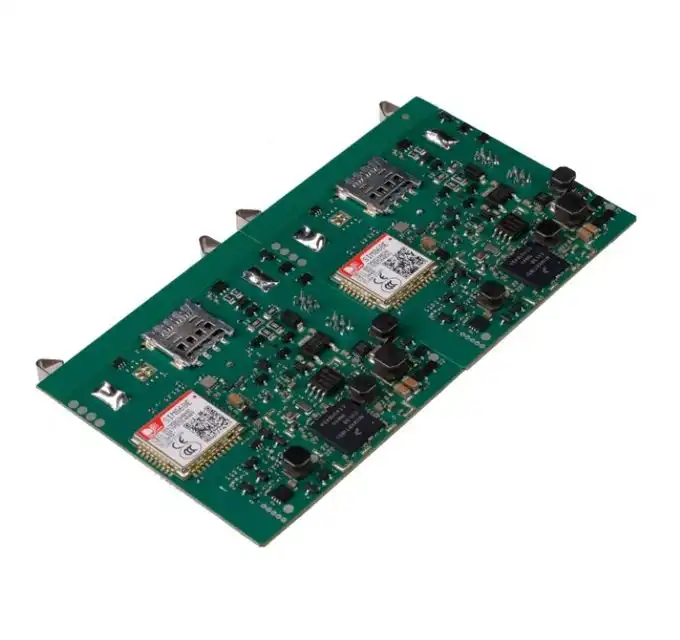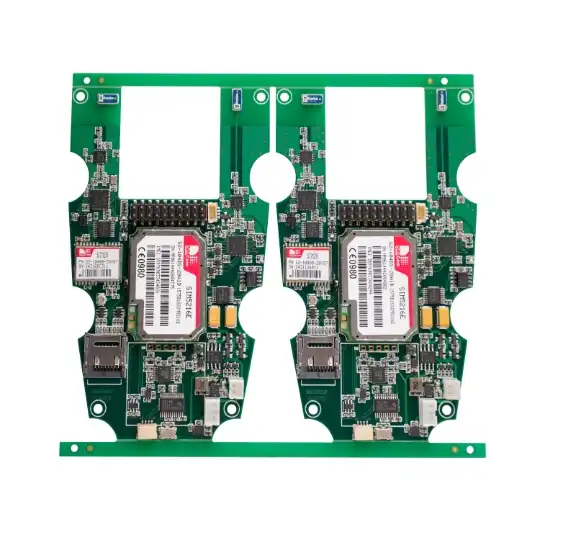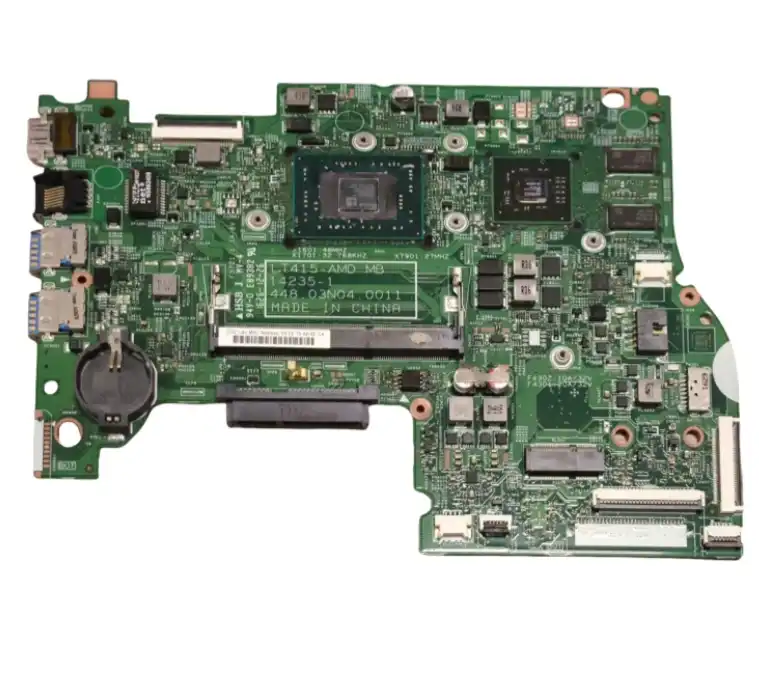Understanding Turnkey PCB Manufacturing Services
Turnkey PCB manufacturing encompasses a comprehensive range of services that streamline the production process for electronic devices. This all-inclusive approach covers everything from initial design to final assembly, providing a complete solution for businesses seeking efficient and high-quality PCB production.
At its core, turnkey PCB manufacturing involves several key stages:
PCB Design and Engineering
The process begins with PCB design and engineering. Skilled engineers work closely with clients to develop or refine circuit board designs, ensuring they meet specific project requirements and industry standards. This stage often involves using advanced CAD software and simulation tools to optimize performance and manufacturability.
PCB Fabrication
Once the design is finalized, the actual PCB fabrication takes place. This involves creating the physical circuit board using various materials, typically FR-4 or other specialized substrates. The fabrication process includes multiple steps such as drilling, copper layering, etching, and applying solder mask and silkscreen.
Component Sourcing
A critical aspect of turnkey PCB manufacturing is the sourcing of electronic components. Reliable manufacturers maintain extensive networks of suppliers to procure high-quality components efficiently. This includes both active and passive components, ensuring all necessary parts are available for assembly.
PCB Assembly (PCBA)
The assembly phase involves mounting and soldering components onto the fabricated PCB. This can be done through various methods, including surface-mount technology (SMT) and through-hole technology. Advanced assembly lines use automated pick-and-place machines for precision and efficiency.
Testing and Quality Assurance
Comprehensive testing is essential to ensure the functionality and reliability of the assembled PCBs. This includes visual inspections, automated optical inspection (AOI), in-circuit testing (ICT), and functional testing. Quality assurance measures are implemented throughout the process to maintain high standards.
By offering these services under one roof, turnkey PCB manufacturers provide several advantages:
- Streamlined production process
- Reduced time-to-market
- Consistent quality control
- Cost-effectiveness through integrated services
- Simplified project management for clients
Key Factors in Choosing a Turnkey PCB Manufacturing Partner
Selecting the right turnkey PCB manufacturing partner is a critical decision that can significantly impact the success of your electronics projects. Several key factors should be considered to ensure you choose a reliable and capable partner:
Technical Expertise and Capabilities
Look for a manufacturer with a strong technical background and diverse capabilities. They should be able to handle various PCB technologies, from simple single-layer boards to complex multi-layer designs. Consider their expertise in areas such as:
- High-density interconnect (HDI) PCBs
- Flex and rigid-flex PCBs
- High-frequency and RF PCBs
- Advanced materials handling (e.g., PTFE, ceramic)
Evaluate their equipment and technology to ensure they can meet your specific project requirements.
Quality Control and Certifications
Quality should be a top priority for any PCB manufacturer. Look for partners with robust quality control processes and relevant industry certifications such as:
- ISO 9001 for quality management systems
- IPC standards compliance
- UL certification
- AS9100 for aerospace applications
- ISO 13485 for medical devices
These certifications demonstrate a commitment to quality and adherence to industry standards.
Production Capacity and Turnaround Time
Consider the manufacturer's production capacity and ability to meet your volume requirements. Assess their typical turnaround times for prototypes and production runs. A reliable partner should offer flexible scheduling options and the ability to scale production as needed.
Component Sourcing Capabilities
Effective component sourcing is crucial for turnkey PCB manufacturing. Evaluate the manufacturer's supply chain management and their ability to source both common and specialized components. Look for partners with strong relationships with component suppliers and strategies for managing supply chain disruptions.
Customer Support and Communication
Effective communication is essential for successful project execution. Choose a manufacturer that offers responsive customer support and clear communication channels. Look for features such as:
- Dedicated project managers
- Online project tracking systems
- Regular status updates
- Technical support throughout the manufacturing process
Pricing and Cost-Effectiveness
While cost shouldn't be the only factor, it's important to consider the overall value offered by the manufacturer. Compare pricing structures and look for transparency in quoting. Consider the potential for cost savings through their turnkey approach, such as reduced handling and shipping costs.
Industry Experience and Reputation
Research the manufacturer's track record in the industry. Look for:
- Years of experience in PCB manufacturing
- Portfolio of successful projects
- Client testimonials and case studies
- Industry recognition or awards
A manufacturer with a strong reputation and extensive experience is more likely to deliver reliable results.
Best Practices for Collaborating with Your Turnkey PCB Manufacturer
Once you've selected a turnkey PCB manufacturing partner, establishing effective collaboration practices is key to project success. Here are some best practices to ensure a smooth and productive relationship:
Clear Project Specifications
Provide detailed and unambiguous project specifications from the outset. This should include:
- Comprehensive design files and documentation
- Bill of Materials (BOM) with specific component requirements
- Performance expectations and environmental considerations
- Quality standards and acceptance criteria
Clear specifications help prevent misunderstandings and reduce the risk of errors or delays.
Regular Communication
Maintain open and frequent communication with your manufacturing partner. Schedule regular check-ins to discuss project progress, address any issues, and make necessary adjustments. Utilize various communication channels such as email, video conferencing, and project management tools to ensure all stakeholders are informed and aligned.
Collaborative Design Review
Engage in collaborative design reviews with your manufacturer's engineering team. This process can help identify potential manufacturing challenges early in the design phase, allowing for optimizations that improve manufacturability and reduce costs. Be open to suggestions for design improvements based on the manufacturer's expertise.
Prototype and Testing Feedback
Thoroughly review and provide feedback on prototypes and test results. Work closely with the manufacturer to analyze any issues identified during testing and collaborate on solutions. This iterative process helps refine the design and manufacturing process for optimal results.
Supply Chain Transparency
Maintain visibility into the supply chain process. Work with your manufacturer to:
- Identify potential component sourcing challenges
- Develop strategies for managing long lead-time components
- Explore alternative components or design modifications if necessary
This proactive approach helps mitigate supply chain risks and potential production delays.
Quality Assurance Collaboration
Actively participate in the quality assurance process. Review and approve quality control plans, and consider on-site visits or virtual inspections during critical production stages. Collaborate on developing test protocols that align with your specific requirements and industry standards.
Continuous Improvement
Foster a culture of continuous improvement in your partnership. Regularly review project outcomes and process efficiency. Solicit feedback from your team and the manufacturer on areas for improvement. Be open to implementing new technologies or methodologies that can enhance quality, reduce costs, or improve turnaround times.
Documentation and Knowledge Sharing
Maintain comprehensive documentation of project specifications, design changes, and manufacturing processes. Encourage knowledge sharing between your team and the manufacturer's experts. This helps build a repository of best practices and lessons learned, which can be invaluable for future projects.
Conclusion
Choosing the right turnkey PCB manufacturing partner is a critical decision that can significantly impact the success of your electronics projects. By understanding the comprehensive nature of turnkey services, carefully evaluating potential partners based on key factors, and implementing best practices for collaboration, you can establish a productive and reliable manufacturing relationship.
Remember that the ideal partner should offer more than just technical capabilities. They should be a true collaborator, providing insights, flexibility, and support throughout the entire PCB manufacturing process. With the right partner, you can streamline your production, improve quality, reduce time-to-market, and ultimately gain a competitive edge in the rapidly evolving electronics industry.
Your Trusted Turnkey PCB Manufacturing Partner | Ring PCB
Ring PCB stands out as a premier turnkey PCB manufacturing partner, offering comprehensive solutions backed by years of expertise. Our team of 500+ professionals excels in R&D, sales, customer support, and manufacturing, ensuring innovative and cost-effective PCB/PCBA solutions. With ISO-certified quality control, 24/7 global support, and advanced manufacturing capabilities, Ring PCB is your ideal partner for all PCB needs. Experience unparalleled service and quality - contact us at [email protected] to elevate your electronics projects.
References
1. Smith, J. (2023). "The Complete Guide to Turnkey PCB Manufacturing". Electronics Design Magazine, 45(3), 78-92.
2. Johnson, A. & Lee, S. (2022). "Quality Control in Modern PCB Manufacturing". Journal of Electronics Manufacturing, 18(2), 205-220.
3. Thompson, R. (2021). "Selecting the Right PCB Manufacturing Partner: A Comprehensive Approach". IEEE Transactions on Electronics Packaging Manufacturing, 44(1), 56-71.
4. Wilson, E. (2023). "Advancements in Turnkey PCB Production Technologies". International Journal of Electronics Production, 29(4), 412-428.
5. Chang, L. & Patel, N. (2022). "Best Practices for Collaboration in PCB Manufacturing Projects". Electronics Engineering Management Review, 37(2), 150-165.






